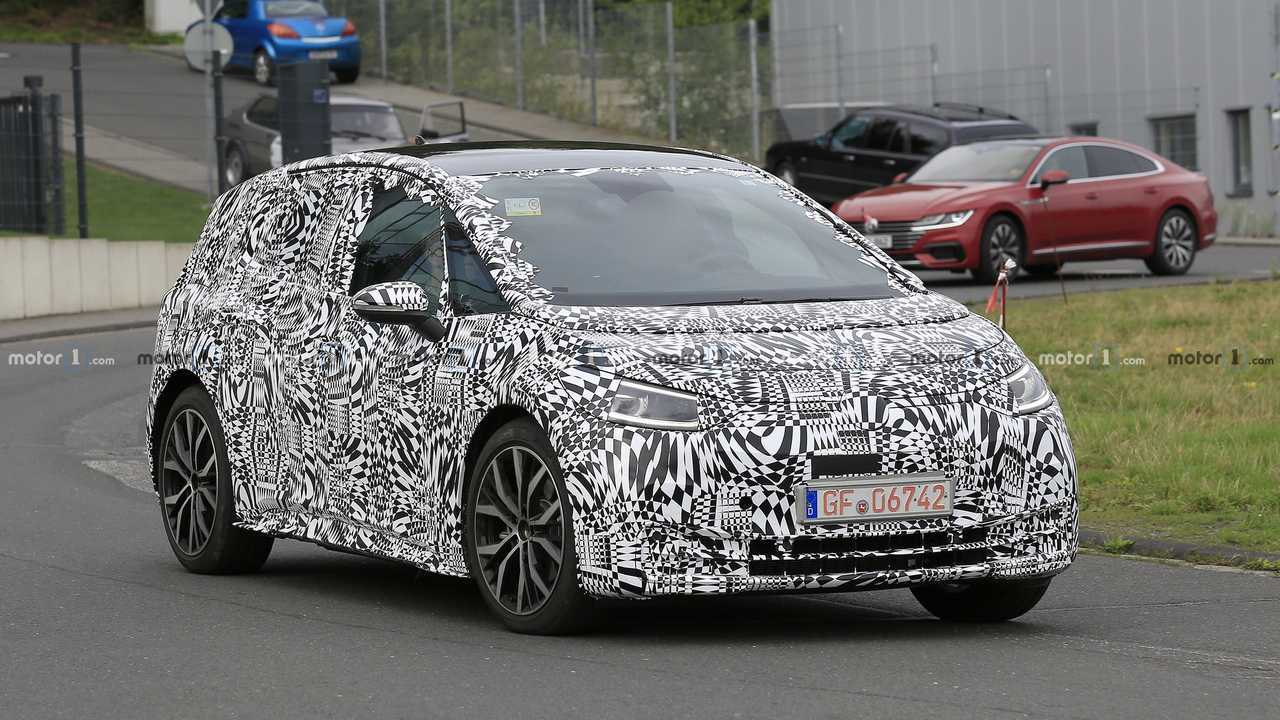New platform, new logo, new beginnings for Volkswagen.
More than 30,000 people have put their names on the dotted line to reserve a Volkswagen ID.3 1st Edition even before the electric hatchback’s full reveal. VW had a long teaser campaign for its first MEB-based car in the build-up to the world reveal scheduled for next week at the 2019 Frankfurt Motor Show, and that surely helped drive up the number of orders. Ahead of its IAA premiere, our spies have caught several near-production prototypes of the compact EV while undergoing final testing in the company of a Nissan Leaf and a Hyundai Ioniq.
There’s still plenty of camouflage on the test vehicles despite the imminent debut of the ID.3, but the camo is so thin you can actually make out most of the exterior design details. Serving as a replacement for the e-Golf, the new zero-emissions compact hatchback will usher in a new logo for Volkswagen once the covers will come off in a few days at IAA. The eighth-generation Golf will be the second car to get the updated badging, with the rest of the lineup to eventually make the switch as well.


VW has already revealed quite a lot of details about its new EV, mentioning it will come with a choice of three battery sizes: 45 kWh, 58 kWh, and 77 kW, granting a WLTP-certified range between 330 and 550 kilometers (205 and 342 miles). The Wolfsburg marque offers a warranty for the battery life for 160,000 kilometers (99,420 miles) or eight years, whichever comes first.
A rear-wheel-drive car, the ID.3 should offer quite a few electric thrills thanks to a decent power output of 201 horsepower (150 kilowatts) and an instant torque of 310 Newton-meters (229 pound-feet). The electric hatchback is estimated to weigh around 1,650 kilograms (3,637 pounds), according to a prototype review from Autocar.
Yes, it’s considerably heavier than a conventionally powered Golf, but it’s hardly a surprise given its EV nature. On the flip side, it will have a perfect 50:50 weight distribution, partially thanks to the battery pack located underneath the cabin floor. Speaking of which, the battery can provide enough juice for about 290 kilometers (180 miles) provided it feeds on a 100-kW charger.
Following next week’s big debut in Germany, the VW ID.3 will enter production towards the end of the year. First customer deliveries are scheduled for mid-2020.

